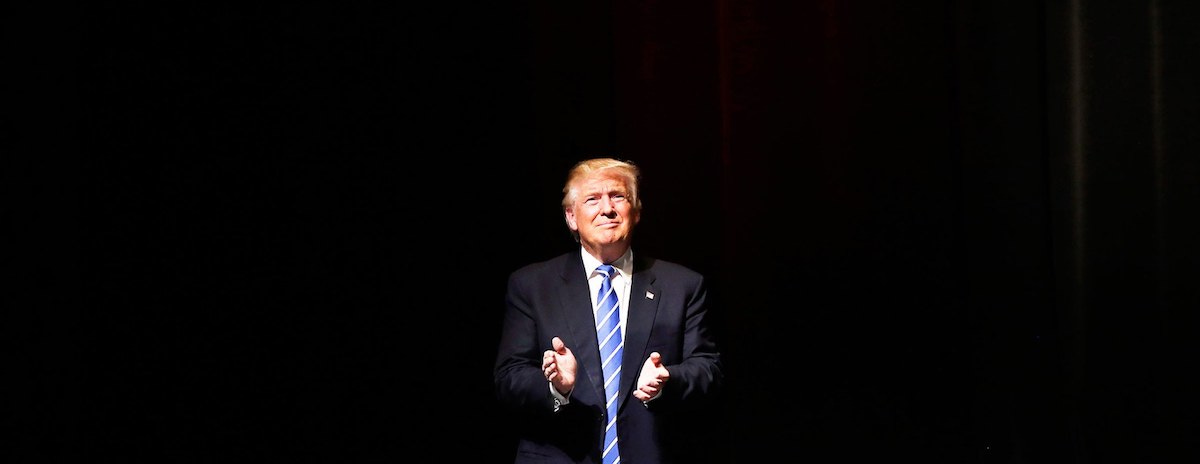The best piece I’ve read on Donald Trump came out in 2017. It’s written by Rebecca Solnit, the historian, activist, and author.
What I love most about it is that it flies at an altitude above the headlines. It doesn’t discuss any particular policy decision or inflammatory remark, but instead attempts to get at the psychology of the then-commander-in-chief.
With the news of last week’s convictions, the piece hits differently. The criticism is just as biting, the language just as poignant. But as I re-read it this morning, I couldn’t help but ask: how can we possibly still be here? How are we—seven long years after this piece was first published—wondering if our country will elect this man as our leader?
I hope you can find a few minutes to read the article—if for no other reason than for the beauty of its writing.
Here’s the piece: The Loneliness of Donald Trump
Warmly,
Simo
P.S. Tomorrow (6/3) I’m teaching a **free** 30-minute workshop called “21 tips to make you a better writer.” Register here to attend or get a copy of the recording.
P.P.S. The song of the week is the new single from Anderson .Paak and Fred again. The full songs of the week playlist is here.




Like Rebecca Solnit I realized what I had learned from books and from life hardly equipped to fit into the time and place I actually lived in. But what most surprised when I read book My Nonexistence: A Memoir to hear a woman born more than 20 years after me say her fight wasn’t just to survive bodily, though that could be intense enough, it was to survive as a person possessed of rights, including the right to participation and the right to have a voice. From a young age she had been the target of street harassment, pursued and pressured for sex by adult men even men on the edge of her family and social circles. She said those altercations were about men asserting their sovereignty over her and people looking the other way.
I heard my own experience in her words which surprised me. I thought the 1960s feminist revolution had changed the culture that damages women for no reason other than our gender (especially the beatniks of San Francisco) had expected me to obey, as though I belonged to anyone except me. Whether or not the world has become more violent or it is just that we are now more aware of it is a question I ask myself. Certainly there is more violence in films. In the past there might be a rape , usually not shown, but today films made by men presented in gory and lurid detail, showing kidnappings of children and torturing and killing women as erotic and somehow acceptable. I had hoped that young women might skip some of the old obstacles, if it was acknowledged that rapists cause rape and not alcohol, outfits, or the desire of women to go places
Feminist basic messages.was: It’s not you, it’s patriarchy which told us we were inferior to me and incompetent for most jobs. At least women proved that is no longer true. But in general men in America will never vote for a woman as president but what is surprising is that educated woman vote for a man who has taken away so many of their rights and is trying to rescind women’s rights, to put women back in their place, to stuff us back into Ikea boxes as optional jigsaw pieces to fit with men..
That makes me appreciate a voice like Rebecca Solnit who is against being only a listener and reader, biding her time and writing books that might have an influence. As she says it is a matter of saving the world every day.
This was a hard read! The critique IS biting and I suppose it's about Trump's psychology, but it's also a commentary on the people who create Trumps. To that end, it seems to skate over (intentionally? carelessly? naively?) the way so much of the country was not mocking him, was never mocking him, is not mocking him now, will likely vote for him again in November. Also--though this we only learned later--how much of the legislative and judiciary branches could/would be bent to his will. (Woof.)
Naomi Klein's book, Doppelgänger, comes to mind as a worthy companion read. In it, Klein explores how Trump and the alt right have grown and maintained their following. The heart of her thesis aligns to Solnit's point that, "[w]hen you don’t hear others, you don’t imagine them, they become unreal, and you are left in the wasteland of a world with only yourself in it[.]" Klein's point is that the left has done this to the right, that we've "ceased to imagine [they] exist in any true deep way," labeling them buffoons and worse. Reading Solnit's essay made me think about how easy it once was to write off Trump and his ilk, how gleefully we did so. And here we are today.
Thanks for posting this, Simone! Obviously gave me a lot to think about (and a place to put those thoughts! Here!). I appreciate your mind and work very much.